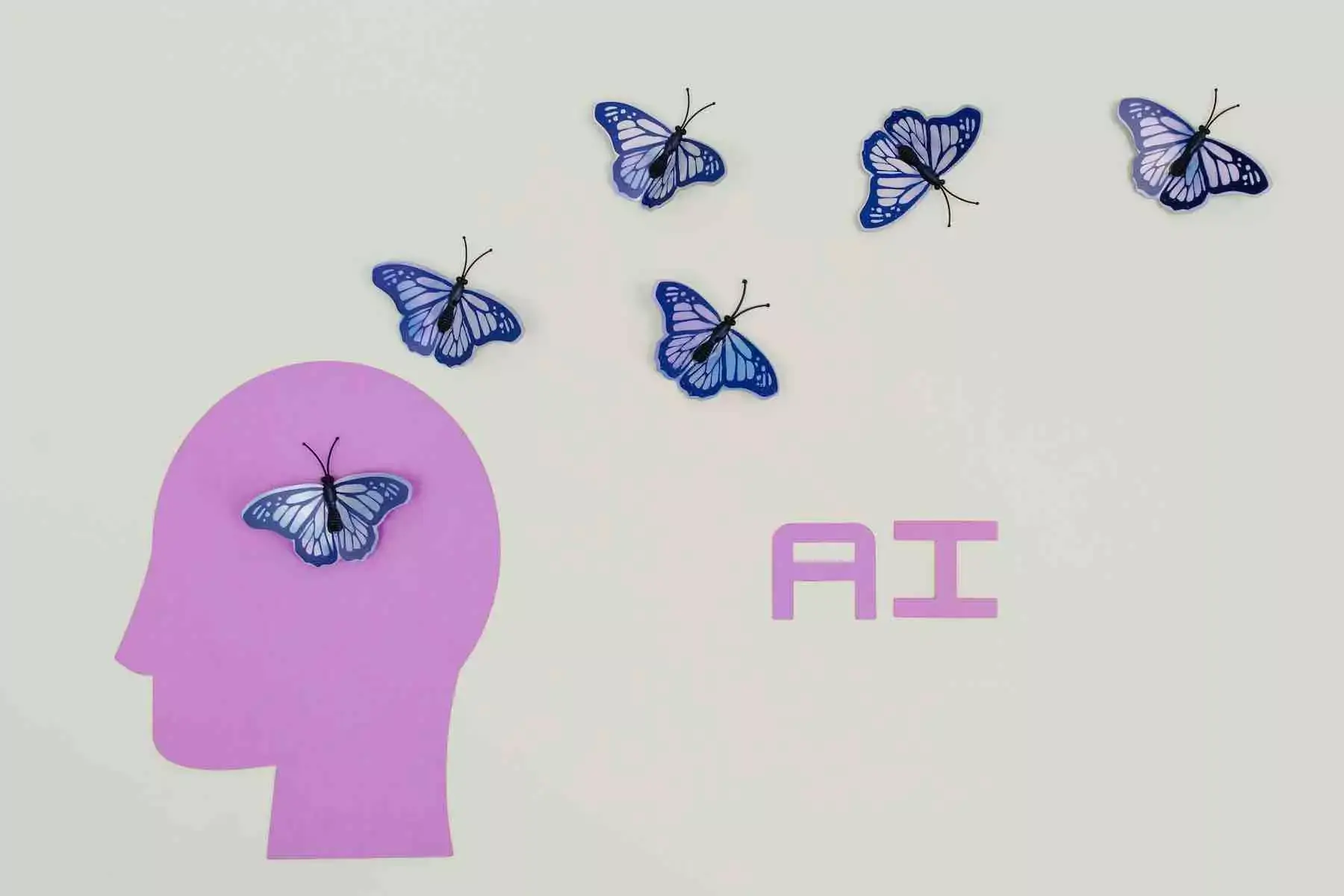How Chat GPT and Other Generative AI is Changing Search

How Chat GPT and Other Generative AI is Changing Search
You’ve probably heard about Chat GPT and other large-language-model generative AI that has been all over the news recently. Depending on what business sector you are in, this may or may not be something you’re actively discussing at work. But one thing seems certain: with its ability to understand and generate human-like text, these AI tools will have huge impacts on nearly every business in the coming years. This is a technology with a very large potential to change the way we interact with the world.
One aspect of life where AI seems all but sure to change the existing model is with internet search. So, in this article we dive into the subject of AI and search, looking at the different ideas and predictions for how AI will change how we use the internet. By learning about these changes early, we can all begin to prepare for the coming landscape, putting ourselves in a better position to have continued success online.
The Continued Primacy of Search Engines
It’s helpful to remember where we are now and where we’ve been. Search engines and search engine optimization have been around in more or less the same form since the late 1990s. Granted, Google keeps making changes and improvements to its algorithm that marketing teams and developers must learn to account for. Over these years, Google and other search engines have introduced things like structured data, local packs, featured listings and more. But it’s also remarkable that in the last 20-some years, the way that we search has remained remarkably stable. We go to a search engine (nearly always google since around 2004) and type a search query, we then scroll through the results. Recent AI tools present the possibility that all of this will be turned on its head.
Some of the ways that new generative AI tools stand to change the search environment.
-
-
Natural Language Understanding
-
Traditional search engines have relied on keyword-based queries, which often require users to craft their queries in a specific manner to obtain relevant results. New AI tools like Chat GPT, on the other hand, excel at natural language understanding. These tools can comprehend queries in a conversational manner, allowing users to ask questions in a more intuitive and human-like way and give answers that take context and tone into account.
-
-
Conversational Search Experience
-
The new AI tools bring a conversational element to search interactions. Instead of receiving a static list of search results, users can engage in dynamic conversations with the AI model. They can ask follow-up questions, seek clarifications, and receive instant responses. This conversational search experience enhances user engagement and enables a more interactive and personalized exploration of information.
-
-
Contextual Recommendations
-
The new AI tools’ ability to comprehend context goes beyond individual queries. They can retain information from previous interactions within a session, allowing for a more personalized and context-aware search experience. As users engage in ongoing conversations, these AI tools can provide tailored recommendations, suggestions, and insights based on the accumulated knowledge. This contextualization leads to more relevant and meaningful search results.
-
-
Handling Complex Queries
-
The new AI tools excel at handling complex and nuanced queries that might be challenging for traditional search engines. Users can pose multifaceted questions, seek explanations, or request comparisons, and these tools can process and generate comprehensive responses. Their deep understanding of language and ability to generate coherent and informative answers make them valuable tools for addressing intricate search queries.
-
-
Assisting with Decision-Making
-
Beyond providing search results, the new AI tools can assist users in decision-making processes. Whether it’s choosing between products, planning a trip, or seeking advice, these tools can offer personalized recommendations based on user preferences and specific criteria.
-
-
Enhancing Accessibility and Inclusivity
-
The new AI tools have the potential to make search more accessible and inclusive. Their conversational nature allows users with varying levels of technological literacy to interact with search engines more effectively. People who struggle with typing or navigating traditional search interfaces can simply express their queries in natural language, simplifying the search process and expanding access to information.
What the New Search Might Look Like:
Search Generative Experience (SGE)
Google’s new approach search has been dubbed the “search generative experience” and it differs from a “search query” in important ways. The major changes are related to what kind of information we expect to get from a search.
How We Search
Before, we would ask about “good seaside towns to visit in Greece” and we would get some snippets of text directly taken from a tourism site, plus a number of links to sites that list destinations and reasons for visiting them.
Now, we could ask for more specific information and get more nuanced responses. “What is a relatively inexpensive seaside town in Greece with renowned food that is serviced by train or bus from Athens?” With the new SGE, this would result in a response that the AI model generates itself, directly answering the question, with links to more information. Google would use bus and train maps, yelp reviews for restaurants, and other directories to make tailored recommendations for your trip, and would furnish links to hotels, train schedules and more. Instead of giving you the tools to answer the question for yourself, SGE tries to answer the question and then gives you tools to act.
Comparisons
Another example: recently, I searched for “new sneakers summer 2023” to see a list of the new sneakers released by the major brands, which I perused photos of as “Google Shopping” results. But with the new SGE my search would look different: “give me a comparison of new sneakers in the $150-$250 range, that are good for people with low arches.” The results would be more tailored to my specific situation, and give me the precise information I’m looking for that may not already exist on the web but can be created by Google generative AI.
What You Can Do To Prepare for the Changes to Search: From Keywords to Content Depth
So what should you be doing to stay relevant in the new “SGE” internet? The key, many experts are saying, is a movement away from keywords towards “content depth”. Let me explain.
In the above example, notice how the search query goes from being largely keyword-based — seaside town, greece, etc. – to being context-based. The old search engines, for example, don’t understand that you are planning a trip, they might think you are just gathering information. The new search engines are more like digital assistants in that they can understand the intention behind the query, asking you questions to specify your particular needs, and then provide context-rich content.
This means that where we used to use keywords to gain search position and relevance with Google, we now need to go further and provide nuanced, in-depth content in order to be noticed by Google. Showing off what you care about, what you know about, and the different ways that it could be relevant is the new content marketing. Not only does AI gobble up that content, but also it remains important to have a human voice, to be a trustworthy source of information when AI-generated information is free and available. All this to say that where we used to create content, now we should be creating “deep content” – content that goes beyond the first questions and generic answers to get to the heart of nuanced, context-specific subjects. To put this another way: write content that can’t be written by AI.
What NOT To Do
Some clients have gotten in touch recently with questions like: should I just get Chat GPT to write my website, or my product descriptions, or the articles that I publish on my website? This is an emphatic NO. Google has always penalized sites for publishing non-original content (i.e. content that they found rather than wrote themselves). This rule seems unlikely to change, because Google is still invested in an internet made up of sites with original and valuable content. Of course, it is harder to detect AI-written text because it is technically “original” but Google is already working to develop tools that will detect these types of texts. Using generative AI to write a draft of an article or product description can be fine though, just make sure that the voice is yours, not a robot’s!
Some Final Thoughts
It’s clear that generative AI and SGE will change search and the way we use the internet in drastic ways. But websites with valuable, nuanced and unique information will always be what the internet runs on. The imperative to be relevant and bring depth to your subject has never been more important.
Get in touch if you need help building a unique and valuable site. Or if you have any further questions about Chat GPT and how it might affect your website.





